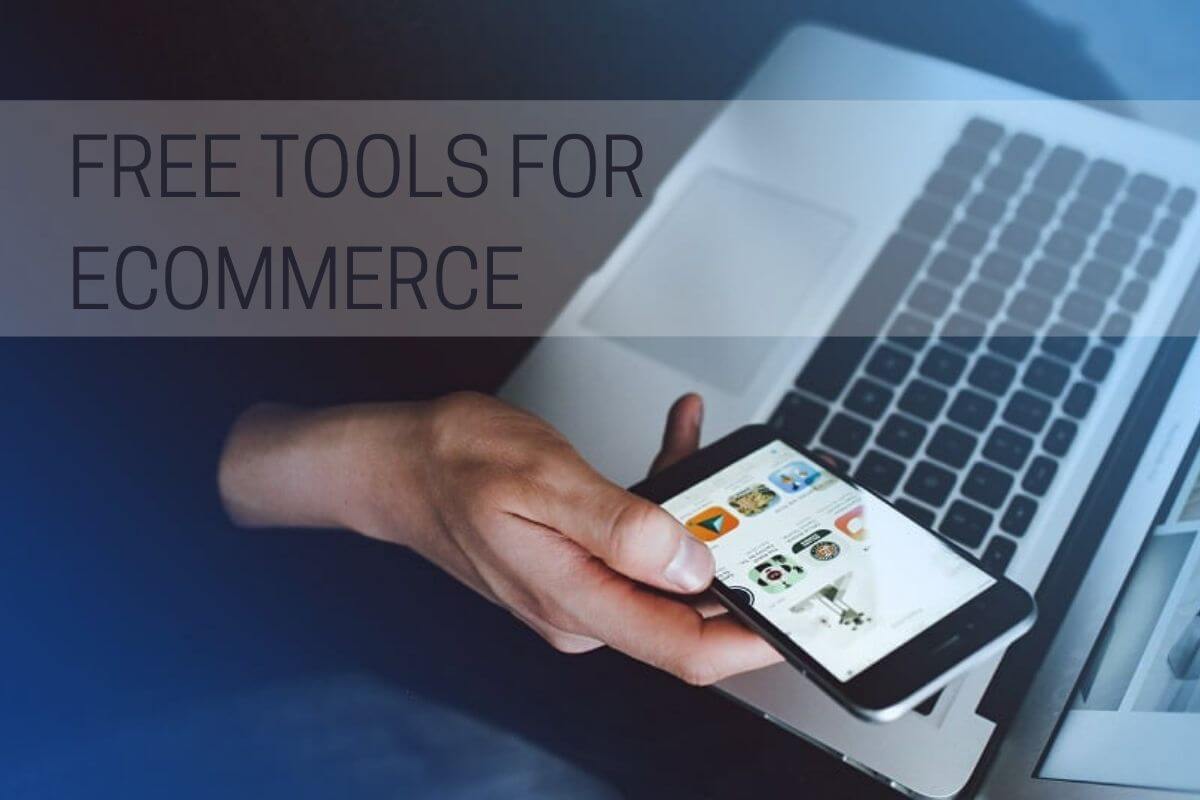
This post may contain affiliate links. Click here to find out more about this.
Table of Contents
A virus has shut down the world, and the solution is isolation from our friends and family. It’s hard to look around and not feel like everything is going down the drain. Here’s the good news: Hard times tend to bring out the best in people. And the people serving the eCommerce industry are no exception. Here are 10 Free Tools for eCommerce Marketers During COVID-19

To help online stores stay afloat during the COVID-19 lockdown, some Ecommerce support businesses are offering their products for free. From a live chat software to an $800 SEO course, these free resources are too valuable to pass up.
Take advantage of all 10 while they’re available, and you’ll be in a better position to reach and connect with potential customers. Try these 10 Free Tools for Ecommerce Marketers During Covid-19.
Marketing Software for Ecommerce Marketers
There are so many ways to communicate with customers today—and, in turn, so many tools to make that communication faster and smoother. Try out this free software to improve and expand your marketing via SEO, social, live chat, and push notifications.
1. SpyFu
Optimizing your store for search can feel like solving a riddle. Sure, there are resources on SEO and paid AdWords campaigns, but Google’s search engine rules aren’t explicit. Sometimes you might wonder: Am I even targeting the right keywords?
SpyFu points you in the right direction. The keyword research tool shows how organic and paid search terms have ranked for competitors in the past, so you know which phrases are worth targeting. And right now, SpyFu is offering their Premium membership free for two months.
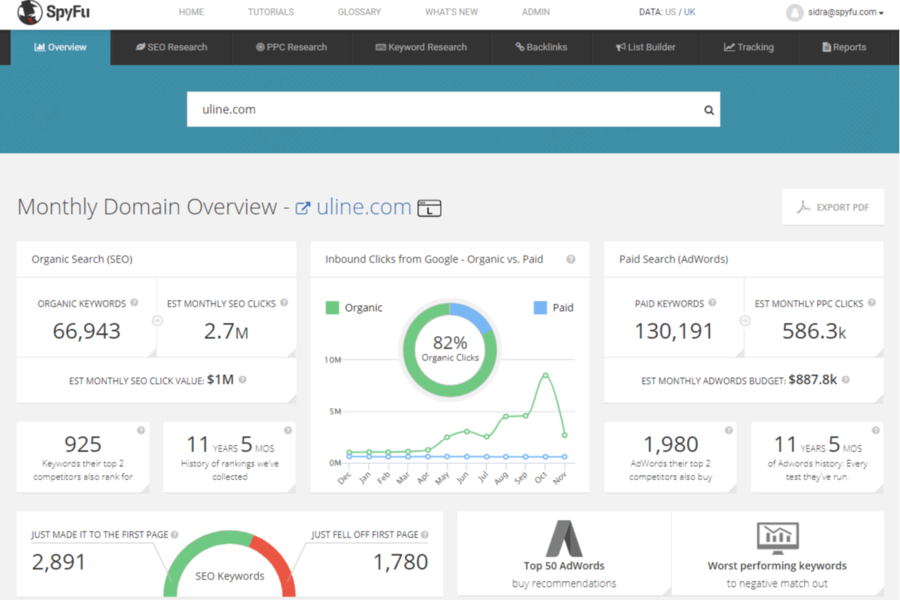
Start using SpyFu by entering a domain address to see that site’s keyword performance for the past 13 years—their paid keywords, organic search terms, number of clicks, and more. Instead of manually entering addresses, users can also create a list of sites they want SpyFu to track automatically.
2. Hootsuite
Managing your brand’s social media accounts can be an administrative nightmare. If you don’t use a social management platform, you have to log on to each account to create and publish posts. And if you want to pull performance insights, you have to export results from each platform and compile the data yourself.
Minimize the tedious work by using the social media management tool Hootsuite. It let you complete all of these social media tasks for up to 10 social accounts across Facebook, Instagram, Twitter, Linked In, Pinterest, and YouTube.
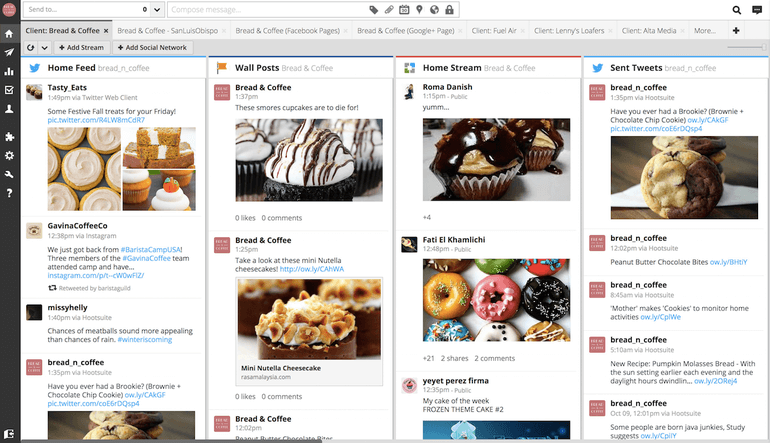
Once you start using Hootsuite, you may find it hard to give up. Instead of spending hours signing onto multiple accounts, you can create and schedule all of your social content from one platform in minutes. And you can see an overview of your brand’s performance metrics for each platform on a single page.
Subscribe to our monthly newsletter filled with good stuff
Your data are safe with us. We will never spam and you can always unsubscribe with 1 click.
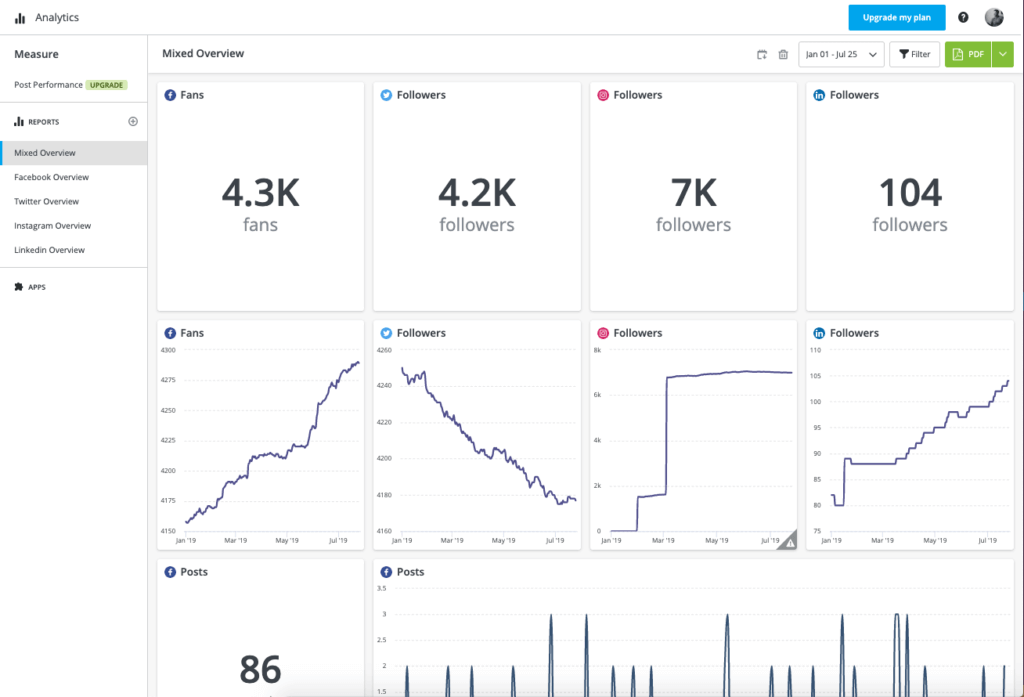
3. Freshchat
Chat boxes in online stores may have been novel a few years ago, but now they’re a driving factor for orders. According to Forrester Research, people are 2.8 times more likely to purchase if they use an online store’s chat feature.
But for small businesses, hiring staff to monitor live chat tools 24/7 isn’t feasible, especially right now. An AI-driven chat platform, Freshchat lets you reach customers across multiple messaging platforms—WhatsApp, Messenger, and more. And for the next six months, the tool will be free for businesses with fewer than 50 employees.
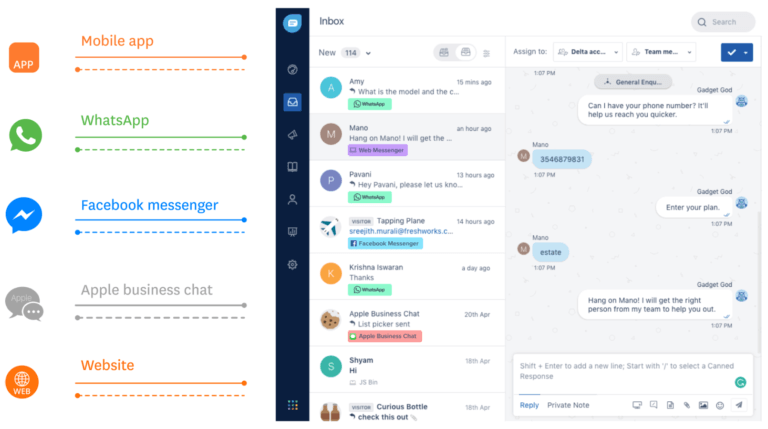
Use Freshchat to set up chatbots that automatically collect necessary information from shoppers who are online when you’re not. Then your team can follow up.
How do the bots know what to say? You design the conversations based on commonly asked questions. The bot can also start a conversation with a shopper based on the conditions you set. Say a shopper visits a page about your latest sale. Your bot could be prompted to send the site visitor a chat message to remind them about the promotion.

It all may sound intimidating if you’ve never set up a chatbot before. But no worries, this is designed for all types of users. And to make it easy to get started, they have a free Admin Fundamentals course to guide you along the way.
When a shopper reaches your online store, you don’t have much time to make an impression. According to Salesforce, the average shopping visit lasts just four minutes. To keep people engaged, it helps to mimic the personalized experience of a brick-and-mortar shop—showing repeat customers items they might like, welcoming new shoppers with a discount, and so on.
4. Aimtell
Push notifications are a powerful way to create those individualized interactions. Based on store visitors’ actions, you send them messages about ways to improve their shopping experience. Create these messages for your site with the web push notification software Aimtell, which is free for the next six months.
Aimtell lets you set up personalized push notifications based on shopper behavior. Did a site visitor recently view a product in your store? Build a notification to show them a discount code for that item on their next visit. Or, you could set a notification to appear for shoppers with abandoned carts that reminds them of the items they left.
To help you track your push campaigns, Aimtell automatically creates reports on your notifications’ conversion rates. Based on this data, you can evaluate which notifications resonate with shoppers to guide the creation of your next campaign.
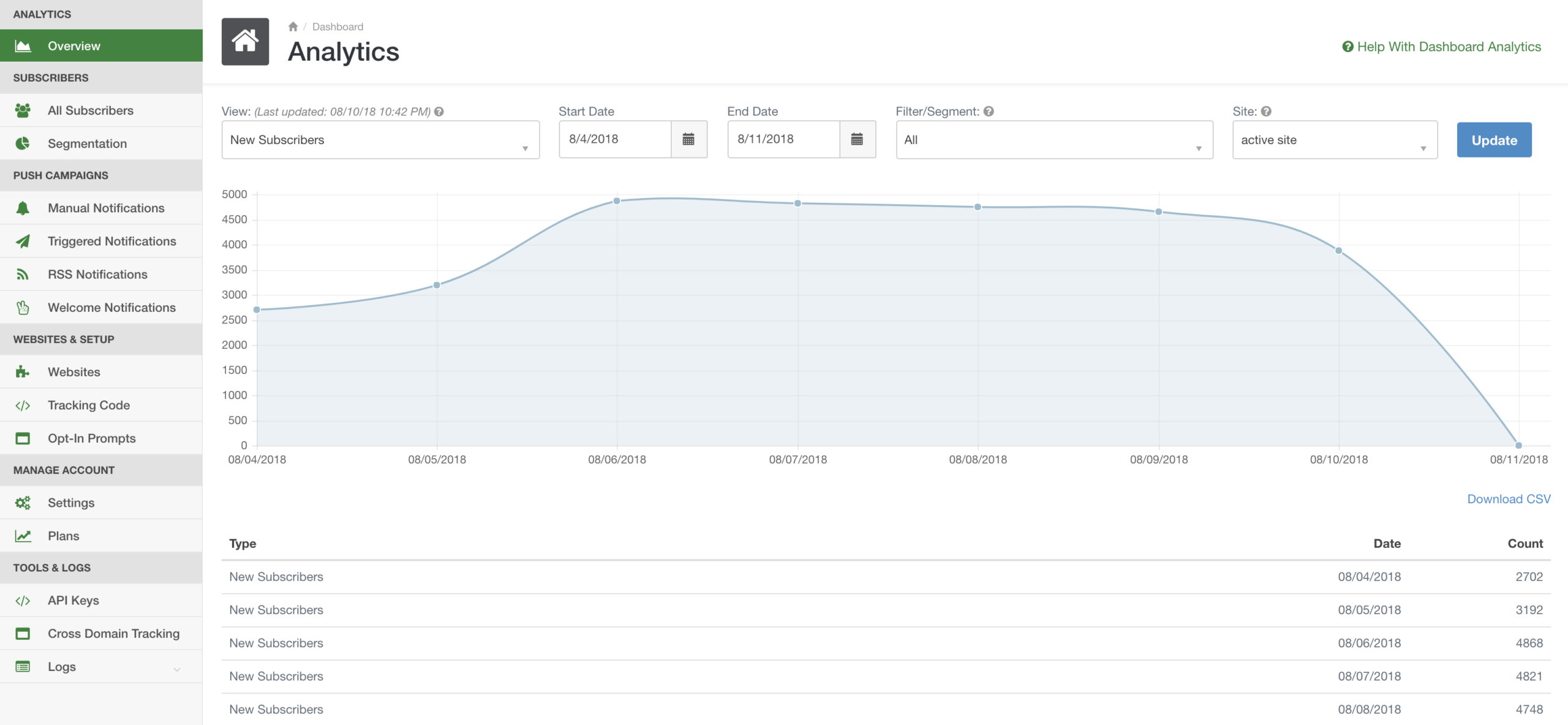
If you’re new to web push notifications, start by reading two of Aimtell’s resources: The Beginner’s Guide to Website Push Notifications and Web Push Notifications: Retail and e-commerce. Once you’ve read these resources, move on to “The Beginner’s Guide to Aimtell” to learn the ins and outs of the tool.
Educational resources
We all have more free time on our hands now that we’re stuck inside. You can sharpen your marketing skills with these free classes. Many of the courses are typically pricey, so take advantage of them while they’re free and build your knowledge. Learn more from the 10 Free Tools for Ecommerce Marketers During Covid-19.
5. Moz Academy
Whether you’re new to search or an SEO whiz, any marketer can learn a ton from Moz Academy’s courses. They cover a variety of SEO skills, from basic keyword research to conducting a technical SEO audit.
With years’ worth of whiteboard videos, it’s one of the best free resources for educational SEO content.
6. Skillshare
Instead of diving into one subject area, you may be more interested in learning about multiple marketing topics. If that sounds like you, check out the online learning site Skillshare.
Its marketing classes cover a wide range of subjects, from design to social media. Right now, they are offering two months of free unlimited access to courses.
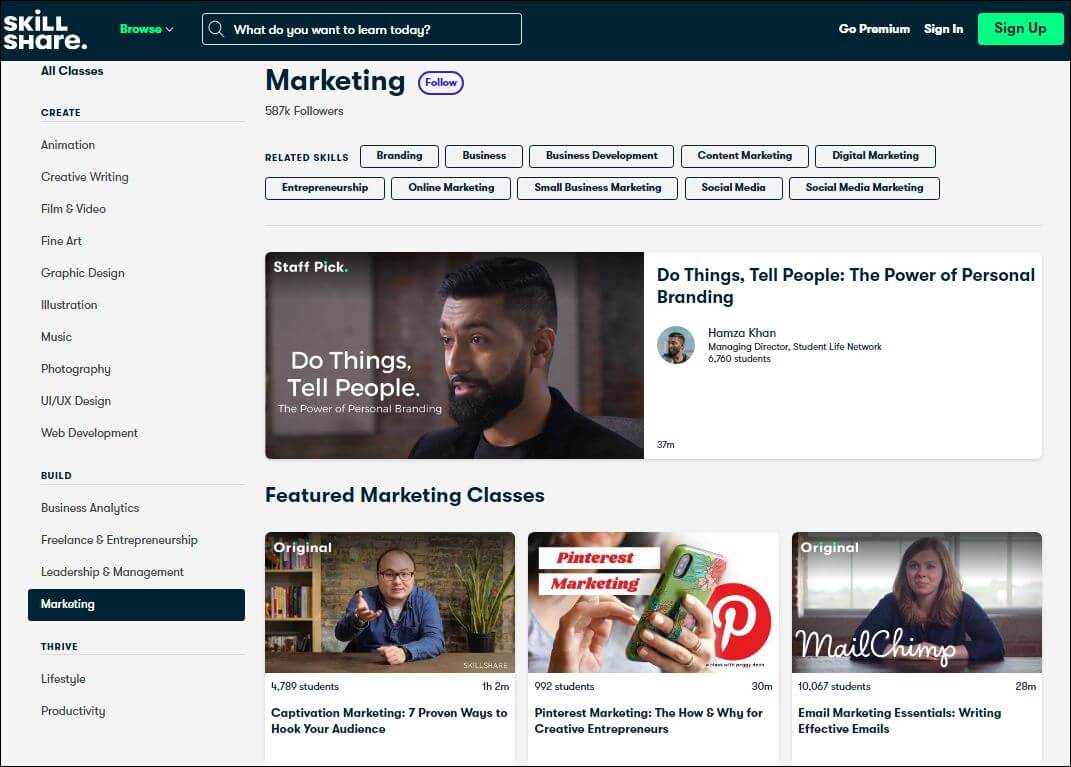
For those hoping to strengthen their online presence, Skillshare has plenty of classes on branding and social media marketing for those hoping to strengthen their online presence.
One course, called Context is Key, covers how to build a solid social media strategy, and it’s had over 38K students.
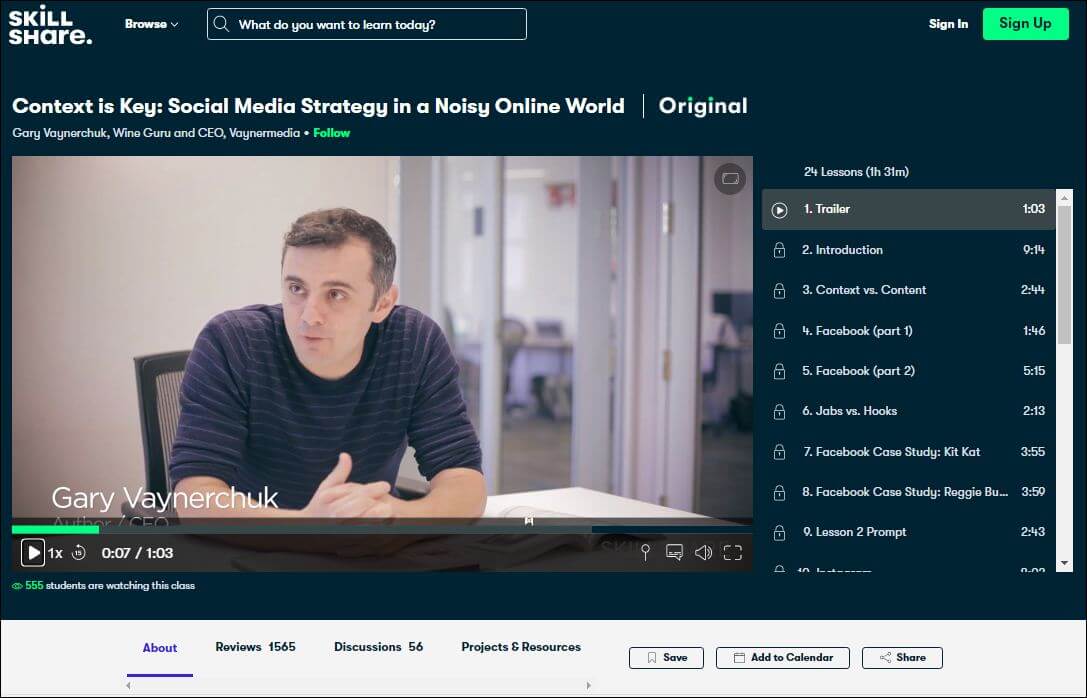
Other popular class topics include SEO, storytelling for marketers, and copywriting. Each class typically takes about 1.5 hours to complete.
To retain what you learn in these courses, consider contributing to the “Discussion” section of the class page. There, you can ask the instructor and other students questions or share observations about what you’re learning.
7. Ahrefs
To encourage people to stay at home, the SEO tool Ahrefs announced on Twitter that their five-hour “Blogging for Business” course would now be free. The tweet received 64 comments, 521 retweets, and 1.3K likes.
It’s no wonder people got excited: The course is usually at a reasonable value, and content marketers rave about it.

Ahref’s course teaches many SEO tactics, like Moz’s classes, and offers broader content marketing lessons. The class begins with an explanation of why growing a blog is worthwhile for businesses. Later on, students learn how to form content ideas based on keyword research and promotion strategies.
To get the most value out of Blogging for Business, you’ll need a keyword research tool. If you’re willing to pay, Ahref’s tool is one of the best on the market. If you don’t want to pay, you can always apply the course’s lessons to one of these free keyword research tools.
8. Content Marketing Conference Academy
For the last six years, the Content Marketing Conference (CMC) has been hosted in Boston in the spring. The 2020 conference was canceled due to Covid-19.
However, the event organizers still found a way to give back to their community—by turning CMC 2020 into a free digital experience and making past conference resources available.
After signing up for a CMC Academy account, you’ll have free access to the first day of the conference. Check out the agenda and register for as many sessions as you want.
Suppose you’re not sure whether you can make an event, no worries! Just click the star icon next to the session, and it will save the event in your “My Interests” column on the “Agenda” page.
Subscribe to our monthly newsletter filled with good stuff
Your data are safe with us. We will never spam and you can always unsubscribe with 1 click.
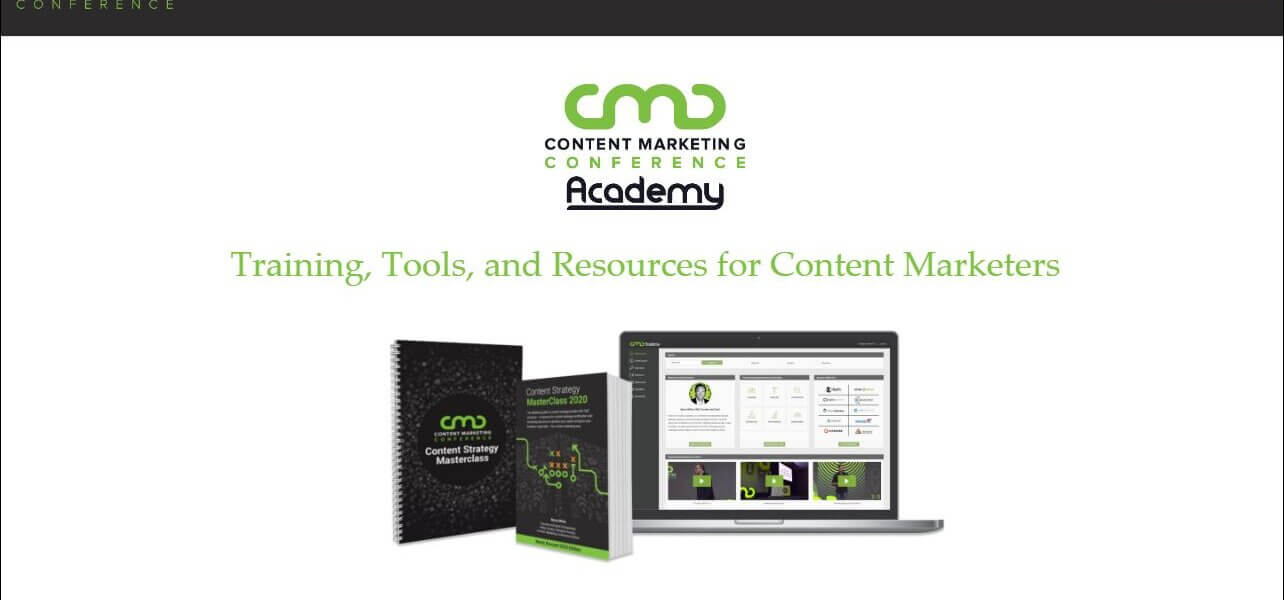
Now it is making several extra resources available: books, podcasts, templates, content plans, and more. So be sure to take advantage of the offer by signing up.
Community resources
In the midst of social distancing, it’s easy to forget that you’re not alone in your business struggles. There are plenty of other eCommerce brands just like yours facing challenges due to COVID-19. Find solidarity and potential solutions by joining these online communities of E-commerce store owners and marketers.
9. A Call to Shop Small by Privy
If you see less online store traffic than normal, you’re not the only one. Many shoppers have cut down their online shopping due to the financial strains of this virus.
With that said, there are still consumers out there with disposable income who want to help small businesses. This made it easy for people to discover those stores with A Call to Shop Small—a searchable online directory where you can find over 2,300 Ecommerce stores to shop from.
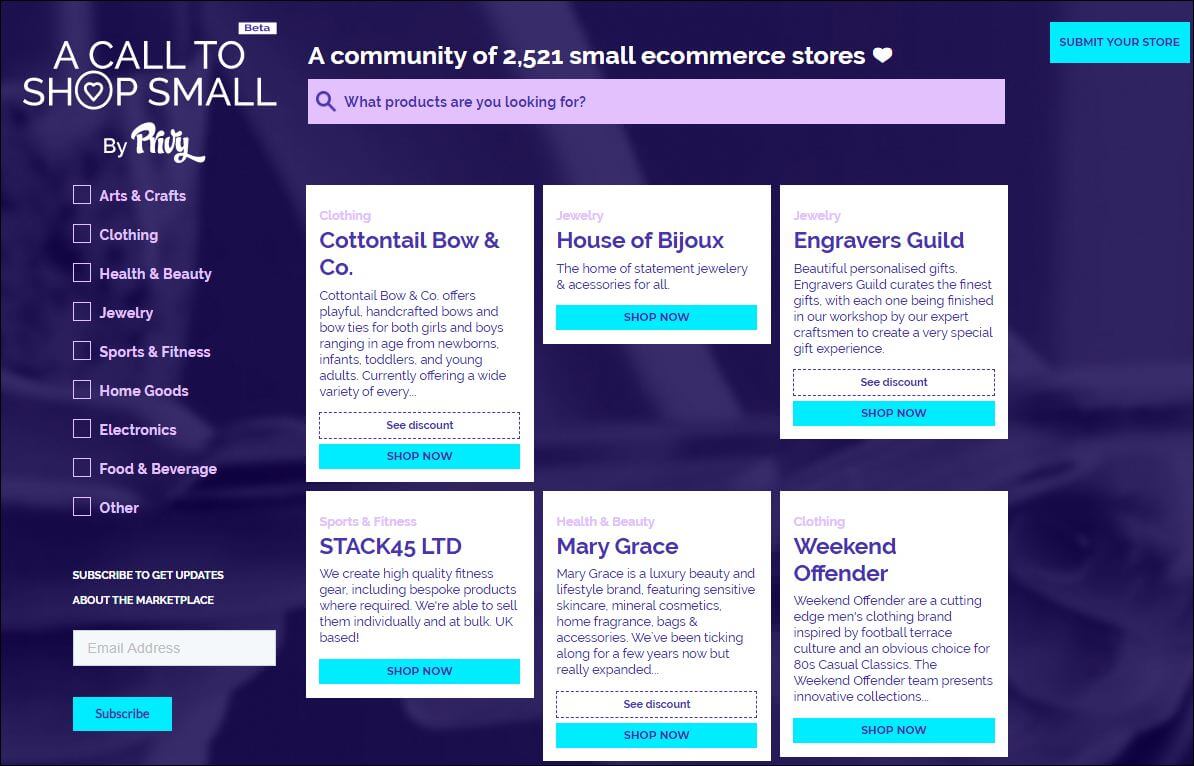
If you feel like your store would be a good fit here, you can submit your business here.
10. OpenWeStand by GoDaddy
Whether you’re looking for Covid-19 business resources or other entrepreneurs to bounce ideas off of, GoDaddy’s OpenWeStand (OWS) site is the place to be among the 10 Free Tools for eCommerce Marketers During COVID-19.
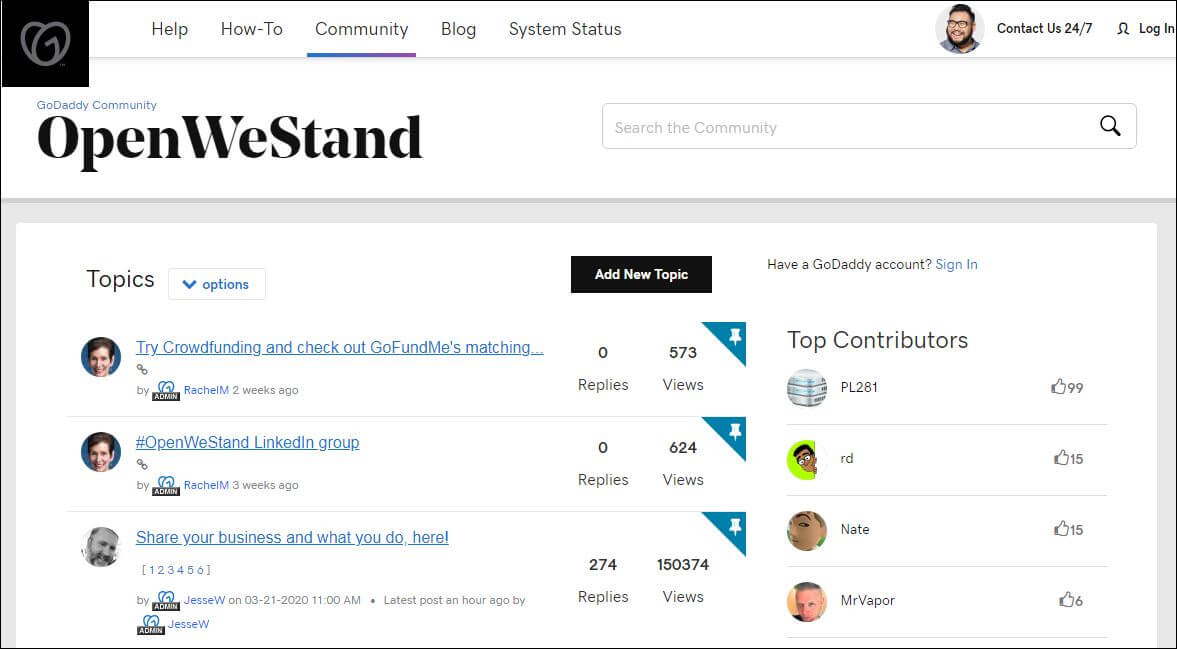
There are several resources on the site to help small businesses stay as healthy as possible during Covid-19:
- Videos and blog posts with information about how to manage your business during the crisis
- A community forum and LinkedIn group for business owners to connect and share ideas about responding to Covid-19
Besides the OWS initiative, GoDaddy offers free website creation services for small businesses to launch and run a site with 24/7 support.
Just because business is slowing down doesn’t mean your marketing should come to a halt, too. Use the free tools on this list to strengthen your lead generation, build your marketing knowledge, and connect with other eCommerce brands. If you dedicate time to these resources now, you’ll be ready to connect with customers when they’re ready to make purchases again—10 Free Tools for Ecommerce Marketers During Covid-19.





